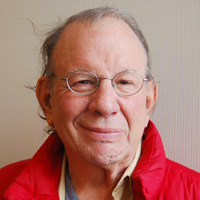Allen Ginsberg, the Beat poet, never married, never defended the institution of marriage and never defined himself as gay. Nonetheless, he'd have felt at home today in gay San Francisco.
In the 50s, Ginsberg came out of the closet because of his experience at Langley Porter. "I'm a homosexual," he told his therapist Dr. Hicks. "So? Dr. Hicks replied.
In the 40s, Ginsberg's doctors aimed to break his deeply ingrained sexual orientation. Fortunately, they didn't shock him with jolts of electricity. Unfortunately, his friend and fellow homosexual, Carl Solomon, did suffer the indignities of electrical-shock therapy. "Ah Carl, while you are not safe I am not safe," Ginsberg wrote in his epic poem "Howl", published by City Lights and tried in a San Francisco courtroom. The judge found City Lights founder, Lawrence Ferlinghetti, not guilty of obscenity though by the rules of today's FCC the four-letter words would result in a stiff fine.
Hoary censorship is alive and well, though San Francisco has come a long way since the "Howl" heresy trial. Many of Ginsberg's lines - including the first, "I saw the best minds of my generation destroyed by madness" - still resonate. Perhaps the line that resonates more than any other is the line he addressed to Solomon: "While you are not safe I am not safe." As he well knew human beings crave a sense of safety in their bodies, core beliefs and values. In a world of bombs and barbs, Ginsberg realized that if all of us aren't safe, none of us are really safe. Empathy alone would not save the world, he believed. Still, he felt that safety matters as much as life, liberty and the pursuit of happiness.
It matters now as much as it did when he wrote, "I saw the best minds of my generation destroyed by madness.
With a Perspective, I'm Jonah Raskin.
Jonah Raskin is a retired emeritus professor at Sonoma State University.
